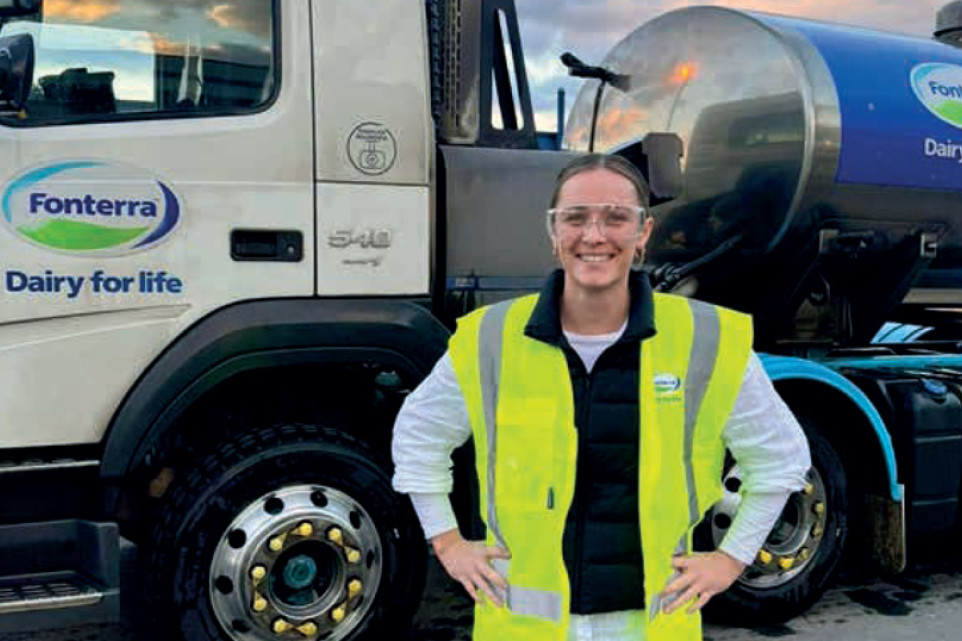Agricultural
3 September, 2024
Let’s Travel To Overseas Farms With Sally
Sally Higgins, the daughter of Sue & Phill (dec’d) Higgins, granddaughter of John and Kate Gordon, has been awarded a Nuffield International Farming Scholarship, an award for emerging leaders in the sector.

Sally and her partner Gus Somes farm a mixed cattle and cropping enterprise in Berat.
The Nuffield Scholarship will see Sally travel internationally across 18 months, researching agricultural land use change in the context of reducing global emissions.
The Allora Advertiser is excited to document Sally’s insights and share her learnings with her home community of Allora.
Her first part of the journey commences in New Zealand.
Kiwi Ingenuity in Agriculture: A Week Exploring New Zealand’s North Island
A week spent exploring New Zealand’s North Island has given me a strong sense of admiration for the efficiency, scale, and ingenuity of the Kiwi agricultural sector. Despite being a relatively small country with a modest population, New Zealand has mastered the ability to develop a few key sectors, achieving a global presence. My Nuffield travels with nine other Nuffield Scholars as part of our Global Focus Program took us through the North Island, where we were introduced to several impressive New Zealand businesses:
· Zespri – Did you know that the kiwifruit is native to China, and not New Zealand? Years of brilliant marketing have positioned New Zealand as the world leader in kiwifruit production, with Zespri at the forefront. Zespri operates as a single-desk marketer; they issue licenses to grow different species of kiwifruit, and they are the only buyer. By controlling the supply of kiwifruit, they ensure farmers achieve consistently good prices. The breeding of new varieties, including gold and red kiwifruit continues to drive demand for the product worldwide, ensuring that New Zealand remains synonymous with kiwifruit excellence.
· Fonterra Dairy – Dairying is one of the most profitable farming commodities in New Zealand, thanks to high milk prices. However, the industry is perceived negatively by many New Zealanders due to concerns about the sustainability of land management practices. The previous government put in place strict policies that restrict the growth of the dairy sector. For instance, there is a moratorium on dairy land conversion, meaning that no new land can be converted to dairying, except in cases where environmental impacts are deemed less significant than the current land use. As a result, the sector is heavily reliant on innovation in genetics and feedstocks to support continued production growth, ensuring that New Zealand dairy remains competitive on the global stage.
· Scion Forests – We visited Scion, New Zealand’s forestry research institute and learned about the booming forestry industry in New Zealand. Their high rainfall and favourable climate presents huge opportunities in forestry, but it is also contentious. The demand to plant trees to generate carbon credits has in some cases led to valuable agricultural land being converted to forestry. Despite the concerns, the forestry industry continues to thrive, driven by a commitment to innovation and production efficiency.
The people we met were just as remarkable as the businesses they operate. We encountered resilient, humble, and intelligent farmers —many of whom share the same characteristics as our Australian farmers. We have so much in common with our kiwi neighbours, and one of the big lessons I took away was the ‘farming by spreadsheets’ approach where almost every farm decision is driven by data and evidence.
I’m looking forward to my travels next through Ontario and Nova Scotia in Canada, where I’m eager to learn more about how farmers in other parts of the world are tackling their challenges and opportunities.”


